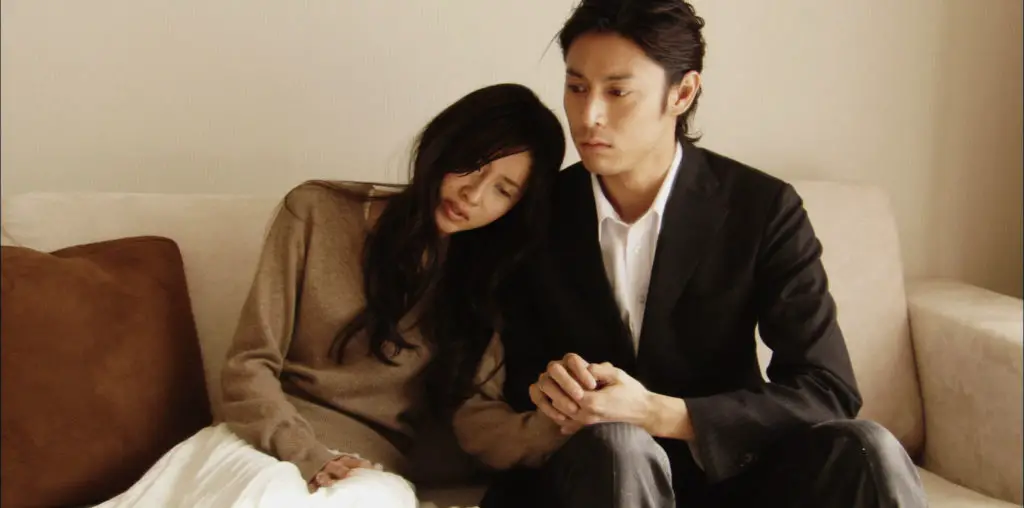
In 1962, 18-year-old novitiate nun Anna (Agata Trzebuchowska), a demure, unassuming orphan born during WWII, is on the verge of taking her vows at the convent that has been her life-long home. Mother Superior insists she must visit Wanda Gruz (Agata Kulesza), her aunt and only surviving relative. The chain-smoking, hard-carousing, heavy-drinking Wanda spills the unexpected news early, spurting out that Anna’s a Jew, born Ida Lebenstein in Piaski. Indifference reigns, for Wanda, a former state prosecutor and now a world-weary judge for the oppressive Communist regime. She’s got baggage. Heavy, hidden baggage. Yet somehow, Wanda warms and welcomes the girl into her life, telling tales of her red-headed, artistic mother and family.
And so begins “Ida,” the new feature from Polish-born director Pawel Pawlikowski, which is actually the first film he has made in his native country after a successful career based in Great Britain. He has won many awards for two early features, “Last Resort” (2000), and “My Summer of Love” (2004, starring Emily Blunt and Natalie Press). His third movie was 2011’s “The Woman in the Fifth,” with Kristin Scott Thomas and Ethan Hawke. “Ida” outshines them all with a slew of well deserved awards, including best directing, writing, acting, production design, and cinematography.
The story in this buddy film centers on searching for identity. For the women, who are met with anti-Semitic disdain by the current occupant of Anna’s long-forgotten house, their quest for answers hits a few bumps and twists, including the arrival of Lis (Dawid Ogrodnik), a young, handsome, saxophone-playing hitchhiker. Wanda stops to pick up on the way to find Szymon Skala, the man who might provide answers to what befell their family during the Holocaust, and, even more remotely, reveal where the bodies are buried. There are temptations a-foot for the innocent Anna, and the poor child has to battle with the men and music that Wanda embraces. Wanda seems convinced this nun-business is just a phase.
Beautifully photographed in crisp black-and-white, and framed in Academy ratio (4:3, vs. today’s extreme widescreen 16:9), “Ida,” a Polish-Danish co-production written by Pawlikowski and playwright and radio writer Rebecca Lenkiewicz, is a stark journey into self. You’re watching something so out of place in a world that lives for the next big action-packed superhero escapade or semi-funny romantic comedy. And 99% of the other films you might gravitate toward. It will jolt you.
Indeed, “Ida” is so austere that it looks like it was plucked right out of the 1960s, perhaps rescued from a film vault at either the Polish or Danish Film Institutes, which helped finance the feature. And what a marvelous, mesmerizing grain to the film. The portrait-like composure of each rock-steady shot, often with the action centered off to a lower corner of the screen, with the bare convent walks, or the outside world, staring down.
And there don’t appear to be any effects used here, and the editing has nary a swipe or a fade. The actors rarely offer a glimpse of seamless, edited emotion, yet still provide incredible performances. The camera never moves. Even when Wanda and Anna take a road trip to the ancestral town, there’s just movement of the world in the frame. The camera, anchored outside the car and facing inward is just the unmoving observer of the shadows cast by the overhead trees reflecting off the windshield, or the woods drifting by on the other side of the actors. There was just one panning shot in the entire film, and that lasted maybe a second. The single hand-held shot wraps up the film, the character centered right in the middle of the screen.
The film’s steady (some may say glacial) pace actually felt soothing, but I know this is not a film for everyone. I just love the way it is constructed, how the gut-wrenching secrets are revealed in such a plain, potent package. Maybe the story lurches about without the usual cinematic flow, but there’s an incredible intimacy here that is raw and exciting.
Life is full of strangeness. “Ida” offers up a quixotic glimpse at the human condition, and a diversion from the expected.
